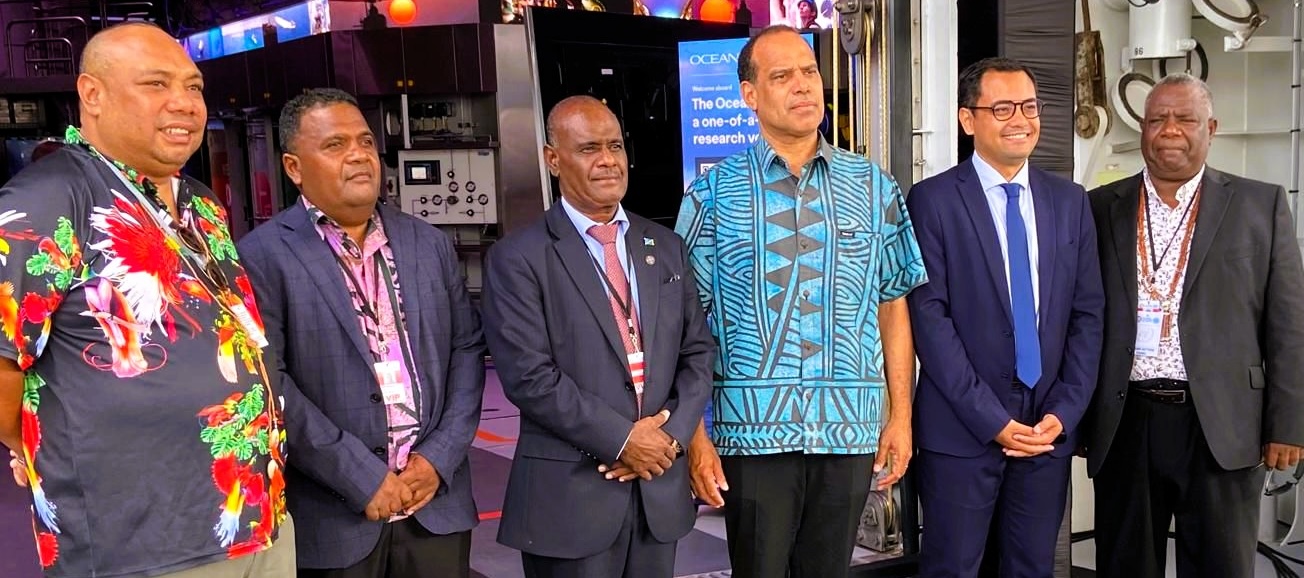
Melanesian nations unite to create the world’s largest marine reserve
Solomon Islands and Vanuatu have announced a major initiative at this week’s UN Ocean summit in France that will see the creation of a “Melanesian Ocean Reserve” to safeguard ancestral waters, homelands, and people of the southwestern Pacific.
The proposed Ocean Reserve will span over 6,074,240 square kilometre of ocean and islands, encompassing the combined national waters of the Solomon Islands, Vanuatu, and Papua New Guinea and connecting with the protected waters of the Exclusive Economic Zone (EEZ) of New Caledonia.
“When complete, it will be the largest Indigenous-led marine reserve on Earth,” a statement issued from the Ocean summit said.
“In fact the proposed reserve – an area as vast as the Amazon rainforest – is one of the world’s most biodiverse marine regions,” the statement explained.
“Protecting it will secure the economic and cultural vitality of hundreds of distinct Indigenous Peoples while furthering global climate, biodiversity, and ocean goals.”
Prime Minister Jeremiah Manele led the Solomon Islands delegation to the summit.
He said for millennia, the Indigenous Peoples of Melanesia have been the wisest and most effective stewards of these sacred waters.
“That is why the governments of Melanesia are joining forces to create an unprecedented ocean reserve that honors our identities, livelihoods, and spiritual connections,” Manele said.

Vanuatu’s Minister for Environment Ralph Regenvanu added:
“It is an objective of our National Ocean Policy to establish this transboundary corridor of traditionally managed ocean space between our countries, and we are delighted that this is now happening.
“The Melanesian Ocean Reserve will give the governments and peoples of Melanesia the ability to do much more to protect our ancestral waters from those who extract and exploit without concern for our planet and its living beings.
“We hope our Indigenous stewardship of this vast reserve will create momentum for similar initiatives all over the world.”
Mahaga and Regenvanu also shared the Melanesian Ocean Reserve concept with Jelta Wong, Papua New Guinea’s Minister of Fisheries and Marine Resources, with the support of the nonprofits Nia Tero and Islands Knowledge Institute (IKI).
Nia Tero, led by an Indigenous CEO and a majority-Indigenous board, is a global facilitator of direct funding to Indigenous Peoples.
“What these Melanesian leaders are doing is giving voice to the hope of all Oceania peoples—to be able to fully bring forward the dream and knowledge of our ancestors in the modern day and to care for the ocean and our planet in the way they deserve,” Nia Tero CEO Aulani Wilhelm said.

Islands Knowledge Institute, led by the Solomons-based Indigenous ecologist Dr Edgar Pollard, has been the primary incubator of the Melanesian Ocean Reserve initiative, supporting deep conversations amongst country leaders and fostering a sense of motivating progress.
“The Melanesian Ocean Reserve has progressed from an idea to a powerful platform amongst Melanesian leaders because it connects to an unmistakable truth in their lives: that treating the ocean as our home, in the deepest sense of the word, is the best protection,” Pollard said.
“The excitement and inspiration driving the Melanesian Ocean Reserve stems from the chance at making this relationship real in the context of our countries at every level, from the tribe to the village to the state,” he added.

